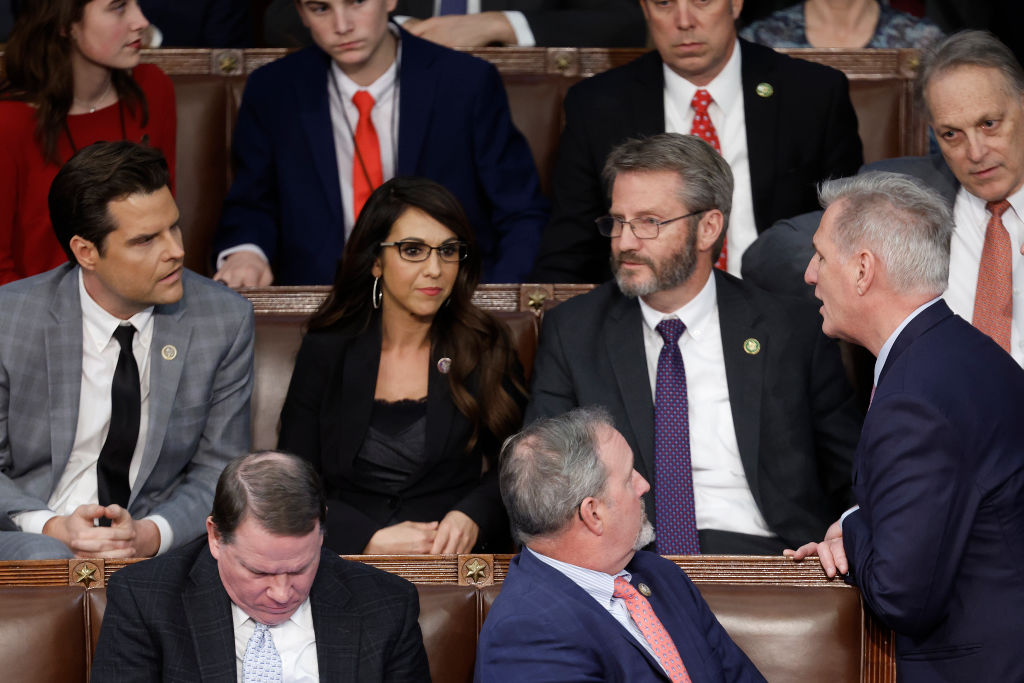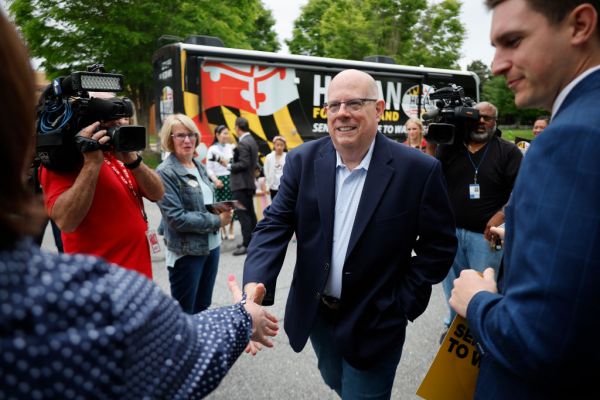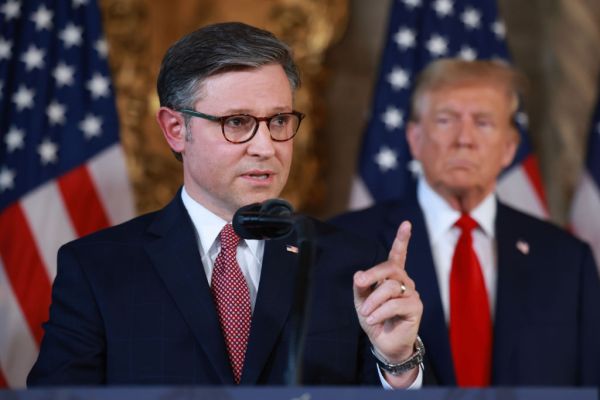Kevin McCarthy’s epic struggle to become speaker of the House produced a lot of memorable images, but the most unforgettable was probably of Rep. Mike Rogers (R-Alabama) being physically restrained from opening a fresh can of whup-ass on Rep. Matt Gaetz (R-Florida), after Gaetz ensured McCarthy’s 14th failure to get the gavel.
The significance of the near-altercation is that it had next to nothing to do with conventional ideological differences. Rogers is a very conservative Republican. Gaetz is a cable news popinjay who happens to be in Congress.
Indeed, the relentless torrent of never-in-doubt-but-often-in-error commentary last week exposed the poverty of our political vocabulary. While it’s true that 19 of the original 20 anti-McCarthy Republicans were members of the House Freedom Caucus (or were endorsed by its campaign arm in the midterms), the majority of the roughly 50 HFC members sided with McCarthy. You might not have known this amid all of the “establishment versus Freedom Caucus” punditry.
Similarly, the holdouts were routinely called “ultra-conservatives” or “hardline conservatives” as if their opposition was driven by a deeper, more sincere commitment to conservative principles. But is anti-McCarthy Rep. Lauren Boebert really more “conservative” than pro-McCarthy loyalist Marjorie Taylor Greene? Heck, do either of them qualify as meaningfully “principled” at all?
Jim Jordan, the rebels’ first choice for speaker among the anti-McCarthy forces, was a steadfast supporter of … Kevin McCarthy.
Even such non-ideological shorthand as “pro-Trump” and “anti-Trump” clarifies little. McCarthy has played Renfield to Trump’s Dracula for years now, but so did most of the folks on the “Never Kevin” roster. During the Trump years, Rogers voted with the president more than Gaetz, himself a thorough Trump sycophant.
One source of this confusion stems from the widespread cockamamie delusion in certain quarters of the right that being part of “the establishment” is code for “moderate,” “sell-out,” or “RINO.” Another magnet next to the compass for would-be navigators of the political landscape is the notion that Donald Trump is not now and has never been part of the Republican establishment, a view that seems to be counterintuitively held most adamantly by people who insist the GOP is forevermore Trump’s party.
Among the many problems at play here is that it is very difficult to have serious conversations about serious things if we don’t have accurate labels for the things we’re talking about. As George Orwell observed, language “becomes ugly and inaccurate because our thoughts are foolish, but the slovenliness of our language makes it easier for us to have foolish thoughts.”
One way out of this morass is to talk less about ideology and more about factions. To the extent they ever existed, the days of the GOP’s ideological coherence are over. Just look around. According to the old standards, defeated Republican Rep. Liz Cheney was a fairly orthodox conservative; she’s now a pariah for being a member of the anti-Trump faction. For years, opposition to abortion was a defining criteria for being politically conservative. Trump is now blaming that position for the GOP’s midterm losses. Defense spending, long a conservative litmus test, fully emerged last week as an intra-Republican fault line.
The chaos isn’t confined to Congress. Fox News brahmins were all over the place last week, with Sean Hannity carrying water for McCarthy while Tucker Carlson hurled epithets at the pro-McCarthy camp, including at colleagues.
The advantage of the term “faction” is that it’s inherently non-ideological. The Founders anticipated that factional conflict would define our politics, and it has. But for most of our history, those factions often had less to do with clear ideological disputes than regional, economic or cultural conflicts.
The challenge with mothballing ideological language in describing today’s GOP is that it makes the comfortable right-left, us-versus-them verbiage that rules everything from fundraising to punditry obsolete.
Some factions today do have ideological flavors like nationalism, populism or, relatedly, foreign policy non-interventionism. But what fuels—and funds—them is a cultivated radicalism and contrived hostility to an establishment that barely exists beyond the formal powers of leadership. If anyone in power amounts to “the establishment” then, sure, McCarthy and Sen. Mitch McConnell, the Senate minority leader, are the establishment.
The question for Republican leaders is whether they will be able to forge a governing faction, particularly in a climate where Democrats have every incentive to let Republicans feast on each other and the conservative base values opposition for its own sake. Thanks to the GOP’s tiny majority, last week’s rebels have learned the power of faction. Whether the majority can exert similar power remains to be seen.









Please note that we at The Dispatch hold ourselves, our work, and our commenters to a higher standard than other places on the internet. We welcome comments that foster genuine debate or discussion—including comments critical of us or our work—but responses that include ad hominem attacks on fellow Dispatch members or are intended to stoke fear and anger may be moderated.